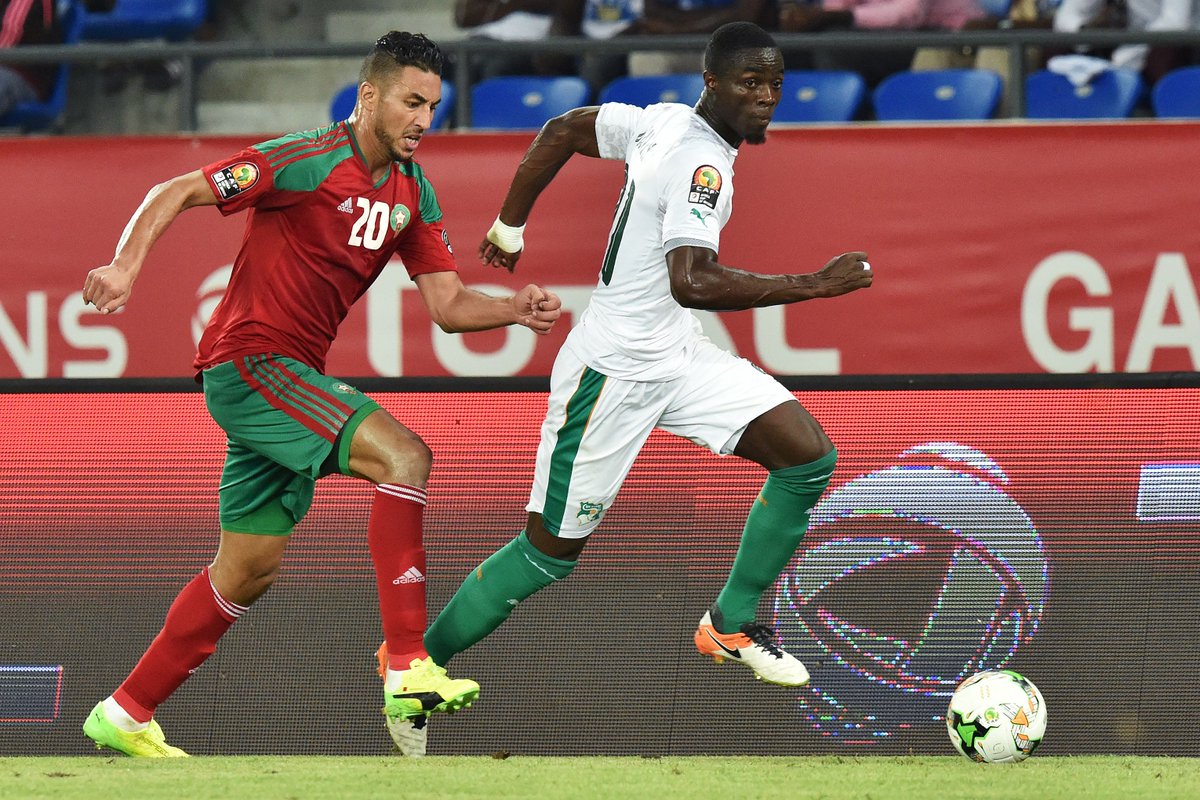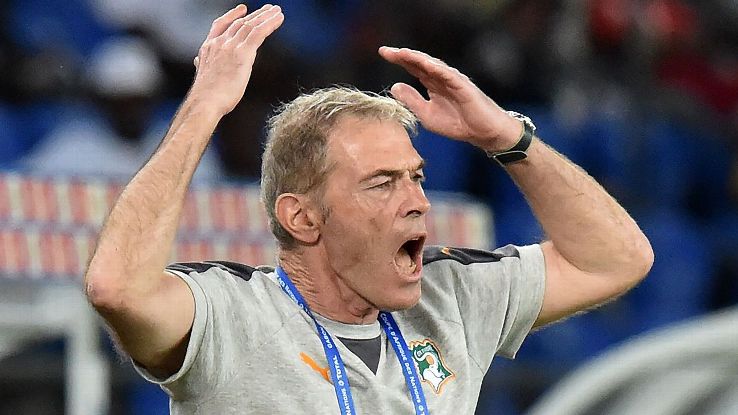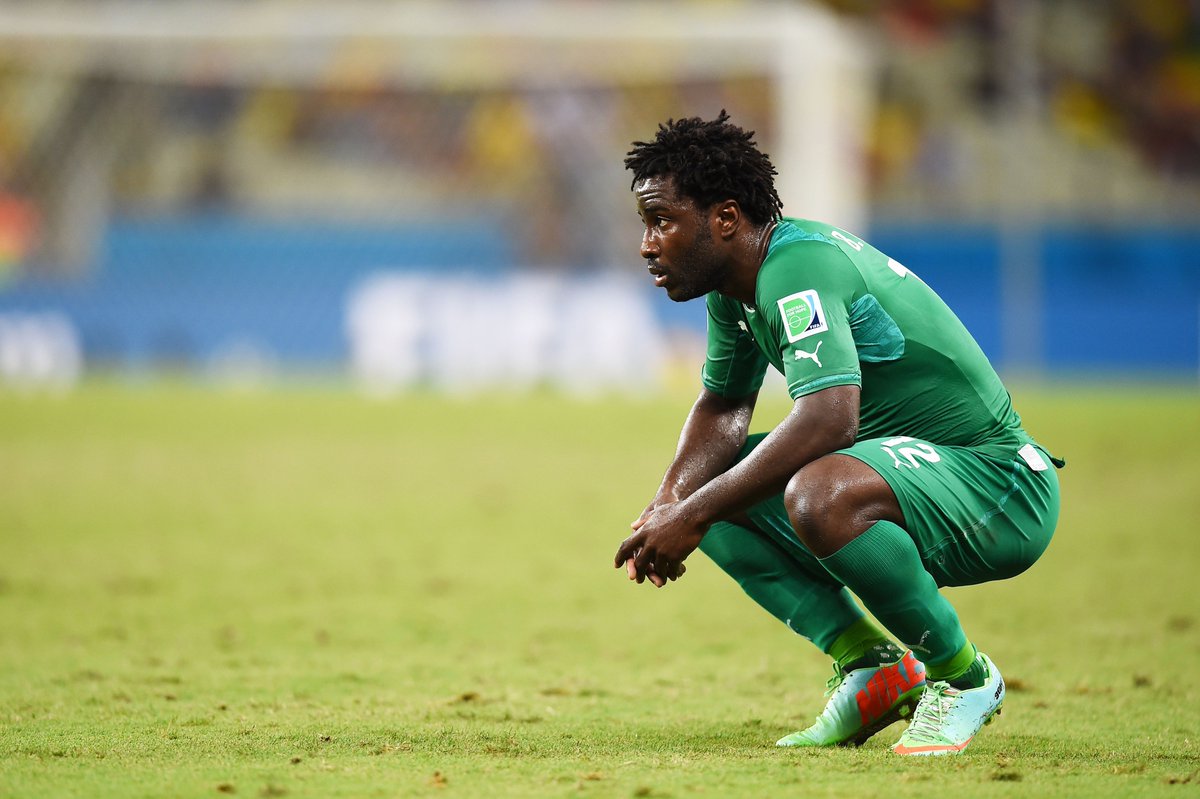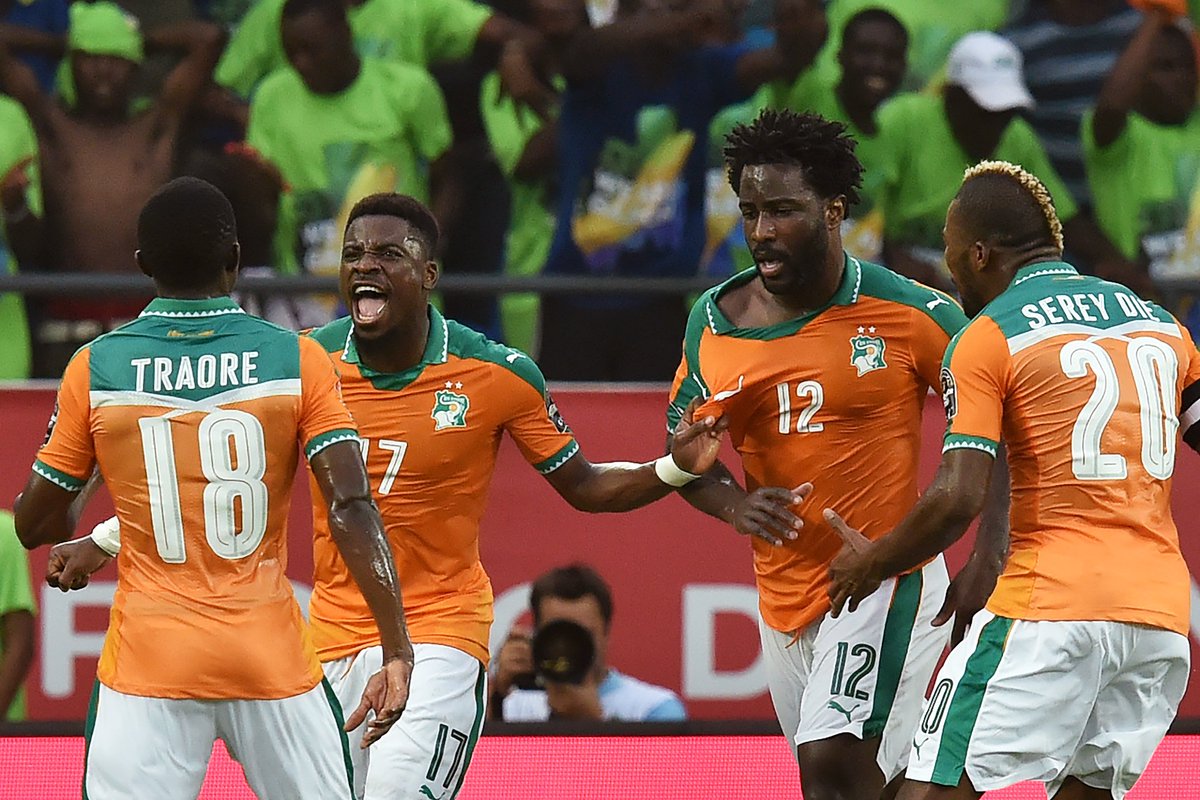Defending champions Ivory Coast fell to a shock group stage exit from the African Nations Cup when they lost 1-0 to Morocco on Tuesday night.
Here are three reasons why they failed ...
1. An inexperienced team lacked leaders
Whether or not retired brothers Yaya and Kolo Toure delivered every time for their country, nobody could deny the influence they wielded.
Ivory Coast lacked the characters to pull them through in times of trouble. Only eight of the squad that won the 2017 tournament were in Gabon and even the sometimes-maligned Gervinho, who missed out through injury and has often been influential for his country, would have added vital experience.
Instead it was hard to see who these players could look to when a game needed turning or a situation needed riding out. Serey Die, this year's captain, came up with what seemed an important equaliser against DR Congo and Salomon Kalou was their most involved player against Morocco but these were slim pickings.

The likes of Eric Bailly and Franck Kessie are exceptional talents but still very young; Wilfried Zaha is still integrating into the squad and Serge Aurier, now 24, marauded menacingly from right-back on occasion but has never shown obvious leadership qualities.
The best teams tend to be bound by intangibles, by those who can inspire when required -- but as Ivory Coast toiled against the Morocco there was nobody to raise the tempo or provide the kind of lung-busting run or crunching tackle that might have lifted everybody else.
The counterpoint is that experiences such as this can help mould players' characters and that Ivory Coast's young team may benefit from this setback in future tournaments.
Perhaps, after all, nobody should have expected too much here given the handover between generations.
2. Coach Michel Dussuyer fell short when it mattered
Dussuyer has a respectable CV but little more -- so was that ever enough to justify his appointment? The Frenchman led Guinea to two Nations Cup quarterfinals and was, for a brief spell, Ivory Coast's assistant manager but it was a surprise when he was named their coach in July 2015 and few would expect his reign to last any longer now.
"I take responsibility because I am the one who plans everything," Dussuyer said after his team's elimination.
Ivory Coast's structure never really convinced and in particular, Dussuyer was unable to coax any kind of form from his attack. He did not help himself: Zaha appeared to have got the measure of Togo's defence in their opening game when, with a breakthrough possible, Dussuyer replaced him with Wilfried Bony.

Ivory Coast's attacking threat diminished and their lack of potency was a consistent theme during the three games. Whenever the two senior centre-forwards, Bony and Jonathan Kodjia, were paired together it seemed more in hope of a goal by weight of numbers than through any particular plan.
That was Ivory Coast's biggest issue: structurally they were lacking and it was hard, throughout the three games, to know exactly what their style of play was. Dussuyer has set Ivory Coast on course to likely World Cup qualification but they never seemed well prepared here and would have benefited from a coach with the ability to create a cohesive unit from disparate parts.
He was outmaneuvered by two other Africa veterans, Claude Le Roy of Togo and Morocco's Herve Renard.
3. A lack of centre-forward quality
Dussuyer never really looked convinced by either Bony or Kodjia, although the former did score their first goal against DR Congo. But other options were thin on the ground and it emphasised that the champions are light on quality up top compared to many of their rivals.
What could this side have achieved if a player with the incisiveness of Pierre-Emerick Aubameyang, Asamoah Gyan or -- dare you say it -- Didier Drogba had been at their disposal? Instead they rarely looked like getting behind teams and for all the hard work of Zaha on the right flank, movement around the penalty area was inadequate.

The concern is there may not be any obvious contenders for the centre-forward spot coming through. Ivory Coast have the tools to be a fine side in two or three years' time, but the hole is a glaring one and it is hard to see where the goals will come from.
That is not to excuse a miserable group stage exit in which the only big-name attacker the Elephants were pitted against was Togo's Emmanuel Adebayor, who had not played competitively all season. But they and Dussuyer might have been bailed out with a more convincing presence in attack.

Latest Stories
-
Mahama directs enhanced security at markets amid fire incidents
11 minutes -
Songor Lagoon dispute: Ada MP urges calm, assures residents of Mahama’s intervention
13 minutes -
Spotify and Sony Music Publishing hosts Music Publishing Camp in Ghana
15 minutes -
I’ll not compromise on the interest of Ghana – Dr Ayine
46 minutes -
Monetary finance must be eliminated – Ato Forson
58 minutes -
We’ll review, analyse, and ensure proper accountability – Jinapor on Gold for Oil policy
1 hour -
Jinapor unveils ambitious plan to revive dormant refinery
1 hour -
Breaking barriers: The inspiring tale of a single mother who achieved her PhD dreams on a foreign land
1 hour -
Afenyo-Markin walks out on Appointment Committee during Ayine vetting
1 hour -
KNUST appoints Kwasi Debrah as Digital Communications Officer
2 hours -
Volta Region to receive fair share of appointments in Mahama’s gov’t – V/R NDC Chairman
2 hours -
Timely and strategic approach to revitalise Ghana’s agricultural sector is needed – Klutse Kudomor
2 hours -
Fuel supply, financial challenges top priorities for energy sector – John Jinapor
2 hours -
We won’t engage in sole sourcing for ECG private sector participation – Energy Minister-designate
2 hours -
Photos from John Jinapor’s vetting for Energy Minister role
2 hours

